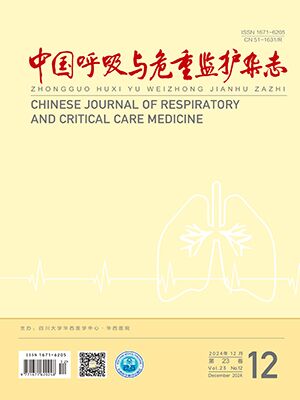Objectives To study the role of the kidney in the maintenance of metabolic alkalosis of critically ill patients during perioperative period.Methods The patients who had metabolic alkalosis in the surgical intensive care unite(SICU) from Nov 2004 to Feb 2005 were enrolled in the alkalosis group;and the control group were the perioperative patients in the department of hepatic surgery at the same time,those who had acid-base imbalance were excluded.The enrolled patients underwent routine tests and some parameters such as creatinine clearance rate(Ccr,to evaluate glomerular filtration rate),titratible acid,ammonium ion,urinary bicarbonate,net acid excretion were calculated.Results The Ccr of the alkalosis group and control group was(76.2±37.1)mL/min vs(98.5±31.9)mL/min,respectively(P=0.042) with a decrement of 22% in the alkalosis group.The titratible acid was(25.2±19.4)mmol/24 h vs(49.9±26.4)mmol/24 h,respectively(P=0.002);the net acid excretion was(156.5±84.3) mmol/24 h vs(117.5±32.1)mmol/24 h,respectively(P=0.047);the ammonium ion was(140.6±81.6) mmol/24 h vs(78.7±16.3)mmol/24 h,respectively(P=0.002).The postoperative electrolytes of the alkalosis group and control group:[K+] was(3.51±0.67)mmol/L vs(4.14±0.59)mmol/L,respectively(P=0.002);[Cl-] was(98.4±8.3)mmol/L vs(102.8±3.0)mmol/L,respectively(P=0.035);[Ca2+] was(2.14±0.21)mmol/L vs(2.25±0.14)mmol/L,respectively(P=0.049);[P] was(0.83±0.34)mmol/L vs(1.11±0.23)mmol/L,respectively(P=0.004);[Na+] was(139.6±7.7)mmol/L vs(140.8±4.6)mmol/L,respectively(P=0.535);[Mg2+] was(0.94±0.15)mmol/L vs(0.90±0.16)mmol/L,respectively(P=0.338).Conclusions Decreased glomerular filtration rate and enhanced renal acidification function are the important factors that maintain the metabolic alkalosis during perioperative period.Potassium,chloride,calcium and phosphorus are decreased during metabolic alkalosis,while sodium and magnesium has no significant change.
Citation: SHEN Qinjun,ZHU Lei,HE Lixian,NIU Shanfu. Clinical study of maintenance factors in metabolic alkalosis of critically ill patients during perioperative perio. Chinese Journal of Respiratory and Critical Care Medicine, 2008, 08(5): 326-329. doi: Copy
Copyright © the editorial department of Chinese Journal of Respiratory and Critical Care Medicine of West China Medical Publisher. All rights reserved




